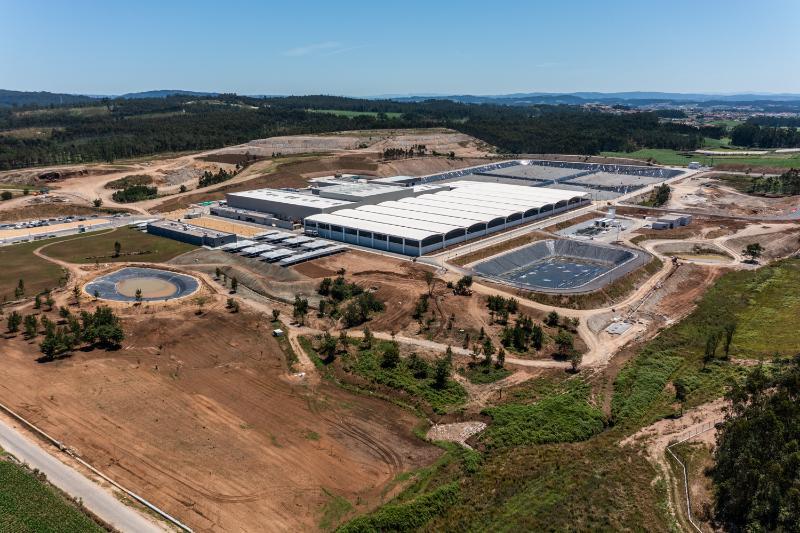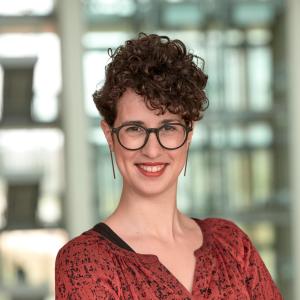A new Portugal sustainable waste management plant uses automated sorting for recycling and energy generation, while improving services to cohesion regions and contributing to the circular economy
Empresa Geral do Fomento (EGF Group) provides waste management services to 6.3 million people—around 60% of Portugal’s population — and manages about 65% of municipal waste generated in the country.
Compliance with EU Directives and national environmental legislation and meeting the recycling targets was a challenge for the company. The company’s treatment facilities could no longer keep up with the needs of Portugal’s growing municipalities.
“There was a clear need to develop the potential of the circular economy in the solid waste sector, however EGF lacked the necessary investments to step-up its efforts at diverting waste from landfill disposal,” says Dimitra Panayides, a loan officer at the European Investment Bank.
EGF turned to its long-time partner, the European Investment Bank, to help implement an ambitious plan to revamp its waste treatment plants. The plan helps EGF to improve its service in the north of Portugal, a part of the country less developed, that benefits from EU cohesion policies. It also aims to develop a new way of recycling packaging waste and to produce renewable energy from biowaste.
“The EGF project, financed by the EIB, is of vital importance for the North of Portugal,” says Emídio Pinheiro, president of EGF. “It enables us to reduce the amount of urban waste sent to landfills without any prior treatment, and to strengthen the recycling performance through selective collection routes.”
Collecting separately all solid waste at the source
Before 2021, the waste deposited in these landfills complied with all necessary controls but with barely any treatment. Now, there’s a new plant called the Resulima Waste Recovery Unit, which treats, recovers and disposes municipal waste.
“Before, solid waste used to be put into landfills without any prior treatment apart from the mandatory controls,” says Rui Silva, executive administrator of the Resulima unit.
Valuable resources and energy weren’t recovered and the landfills were a nuisance to local residents. With the new waste management plant, EGF automatically separates waste from the moment it arrives at the landfill.
“The main difference with our new process is that all urban waste is run through the mechanical treatment unit,” says Silva. “It separates everything that can be recycled and processes biowaste. This ensures that we can treat all the waste generated by the population, separating what can be recycled and what can’t, right at the point of origin.”
The new plant, which will serve as a model for others, helps EGF keep pace with population growth and serve a greater number of rural regions.

“EGF provides services for a number of municipalities covering around 60% of the national territory across north, central and south locations,” says Panayides. “The company is regulated by the state and its subsidiaries are required to maintain a certain level of investment, which helps to ensure homogeneity in their service offer and promotes cohesion objectives hand in hand with the fulfilment of Portugal’s environmental goals.
An investment for cohesion and climate action
In 2019, EGF signed a €75 million loan with the European Investment Bank to support the implementation of several investments geographically dispersed throughout the service areas covered by EGF and its 11 operating subsidiaries.
This project improves basic services in line with EU directives and long-term domestic guidelines for the waste sector in Portugal. As well as promoting a more sustainable approach to waste management, the investments also create jobs and contribute to economic, social and territorial cohesion in less-developed regions across the country.
“Our new way of selecting and recycling waste ensures the proper routing of waste produced by citizens,” says Rui Silva, “building awareness around their role in this process and how essential it is for reducing, reusing and recycling waste. As a result, people cut down on the amount of waste deposited in landfills.”

Rui Silva, executive administrator of the Resulima unit
This type of project is new to Portugal. Its implementation is unique because of its process, scale and reach. “This is the first country in Europe that has managed to have different treatment lines for both waste separately collected and mixed waste in one place,” says Patrick Dorvil, a senior economist at the EIB. “It adds a level of flexibility that, I’ve never seen anywhere else before.”
It was an idea born over 10 years ago, and one that the EU bank has supported from the very start.
“There’s a need for a long-term investment in this project,” says Dorvil. “The EIB was and still is the only one with the means to see this through and invest in similar projects in Portugal. It definitely helps that the Bank has a long-standing relationship with EGF and that this project fits perfectly with our climate bank objectives.”
Ultimately, the support of the EIB goes beyond financing.
“The EIB's investment has a relevant financial impact,” says Pinheiro. “It makes the implementation process much easier and lowers the overall cost of the project. As a company that ensures an essential public service for over 60% of the population, it’s not just important for us to invest in environmental projects, it’s critical and urgent.”
